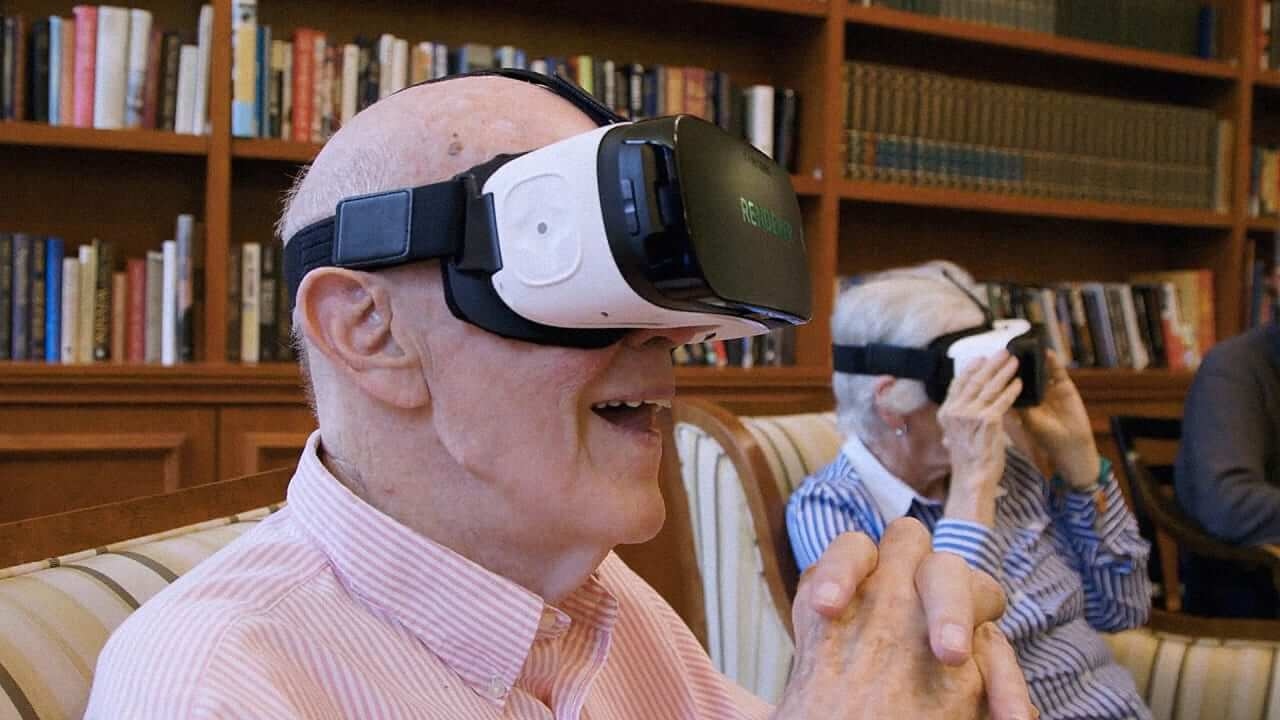Comments
- No comments found

Like most forms of modern technology, seniors are probably the last group of people that you think of when it comes to using virtual reality.
VR is typically associated with younger generations, as its high-tech and offers interactive, highly engaging entertainment; however, it’s these very elements of virtual reality that are making it an increasingly popular technology among the senior demographic.
Many startup companies and researchers are realizing the benefits that virtual reality can offer people of all ages – including the elderly. It’s becoming increasingly more accessible for this age group and offers more than just entertainment; it can drastically improve their quality of life.
Loosely defined, the term virtual reality means “near reality”. In other words, it provides users with an experience that simulates an environment that appears real. The environment is computer generated, and users of this technology can explore and interact with that environment. Those who use it are fully immersed in whatever environment this technology simulates, and have the ability to manipulate items and perform physical actions.
The complete immersion into a simulated environment provides a number of benefits for seniors. Of course, it VR provides entertainment; but the benefits extend far beyond that.
Many older adults are afflicted with mobility issues. The inability to move freely prevents them from experiencing the world as they did when they were younger, which means that their world becomes considerably small.
In many cases, seniors have limited access, which can restrict their ability to travel or even take a walk around a neighbourhood. Of course, when mobility is restricted, older adults can feel as if they are missing out on the many experiences that life has to offer. VR can change that.
Since virtual reality can simulate virtually any environment, it affords seniors the opportunity to explore. In essence, it expands their world. For instance, by simply putting on a headset, a wheelchair-bound senior who is living in a nursing home can be transported to a destination that is thousands of miles away; the rocky shores along the coast of Ireland, the summit of the tallest mountaintop in Southeast Asia, the stadium where his favourite baseball team plays, or even take a stroll down the streets of his or her old neighbourhood.
Through virtual reality, seniors are also afforded the opportunity to engage in educational experiences that they may not otherwise have access to, such as visiting an art gallery or visiting historic monuments.
Virtual reality offers more than just the opportunity to explore the world; it can also be used as a therapeutic tool for patients who are diagnosed with dementia and Alzheimer’s. Cognitive decline leads to memory impairments and reduced mobility, which can cause agitation, mood swings, depression, and compulsive-like behaviours. VR has been found to be an effective tool for distracting patients when the side effects that are associated with dementia and Alzheimer’s arise.
For example, patients can be presented with scenes that are calming, such as walking down a beach or floating in the ocean, which can alleviate stress and regulate the mood. Furthermore, VR may also be a helpful tool for memory recall. By presenting dementia and Alzheimer’s patients with simulations of their old neighbourhoods or places they once frequented, they not only experience a reduction in stress, but research suggests that it may help to trigger their memory.
Pain is another problem that many older adults contend with. Chronic pain can significantly reduce mobility, increase stress levels, and lead to depression. While medications can be used to treat chronic pain, they may be ineffective or they can cause a number of adverse side effects.
Several research studies have determined that VR provides an active distraction, which can be an effective way to reduce pain. While the mechanisms that are associated with neurobiology are not fully understood, the evidence does suggest that the active distraction that virtual reality provides can reduce pain that is associated with osteoporosis, arthritis, cancer, and various other medical conditions that are known to cause chronic pain.
In addition to providing an active distraction, virtual reality also promotes movement. Evidence suggests that movement can actually help to treat chronic pain. Why? – Because it prevents the components of the musculoskeletal system that are responsible for movement – the muscles, joints, and ligaments –from weakening, further complicating pain. Therefore, movement can effectively reduce pain by strengthening muscles, joints, and ligaments.
Decreased mobility can make it difficult for seniors to socialize, and decreased socialization can lead to feelings of loneliness and depression. Virtual reality can serve as a powerful tool for promoting socialization among older adults. For example, in a nursing home facility, seniors can interact with one another via VR headsets, allowing them to bond over shared experiences.
Socialization is crucial for people of all ages, but it is particularly important for older adults. It provides them with a sense of purpose, boosts their self-esteem, improves their mental and physical health, and gives them a sense of belonging.
Brain activity naturally slows with age, which can result in decreased responsiveness, issues with memory recall, and a decreased ability to retain new information, even in people who are not afflicted with dementia or Alzheimer’s disease.
To prevent the brain from slowing, it must be stimulated on a regular basis, and VR can be an excellent way to do just that. By participating in interactive games, attending virtual events, and going on virtual tours, the brain is stimulated, which helps to keep it astute.
Given the many notable benefits that virtual reality can offer older adults, it’s no wonder why so many developers are not getting behind VR that is specifically designed for this demographic. The future of senior care may indeed by more high-tech, thanks to virtual reality.
Leave your comments
Post comment as a guest